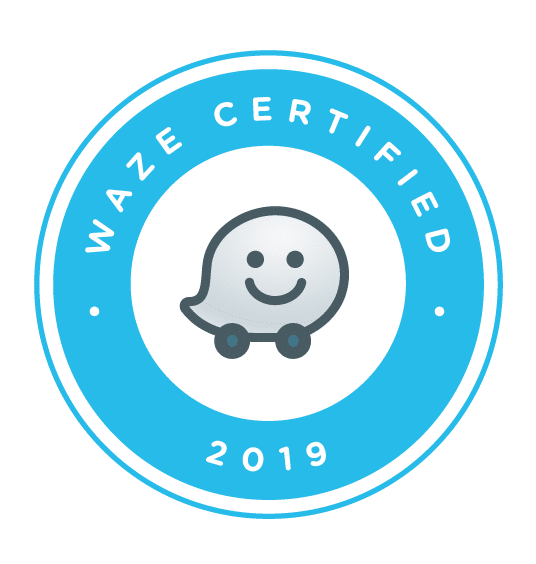I was recently asked to speak to a group of heating and air conditioning professionals about best practices for digital marketing. As I prepared to talk to them about the host of tactics they can employ to attract quality leads, it occurred to me all this “stuff” was going to be really overwhelming to business owners who are already busy enough servicing their clients and running their companies. So I decided to try to create a frame of reference that would help things feel more familiar to them.
In the HVAC industry, much of the talk surrounding product innovation revolves around energy efficiency. Property owners want their homes or buildings to be comfortable and to protect assets on the inside. But they also want to control their costs, meaning consumers want HVAC units that require less energy to work. The same can be said about developing a digital marketing strategy for a business. Owners and marketing professionals want to utilize the many online tools available to help them promote their companies, but must do so efficiently in order to have time to get other work done. Regardless of the industry, budgets are tight, expectations are high, and tangible metrics to prove ROI are necessary. Stressing efficiency in your digital marketing plan can help you uncover and track new leads while optimizing the time and money you invest.
So how can you be more efficient with the energy you spend on marketing your company? Here are three tips to get you started:
Know Your Audience - whether it’s digital marketing tactics or more traditional methods, it’s imperative to know the demographics of your customer base. You can’t, and won’t, attract every person who may be interested in your product or service. Take a look at your customer list: Who has bought from you over the past 12-24 months? What do they look like? Where do they live? This profile is probably your best customer.
Now you have to look a their media habits. Just because you and your buddies like conservative news sites and sports talk radio doesn’t mean your customers are interested in the same thing. Your goal is to attract new customers, not have your friends tell you they saw or heard your ad. You can search online to determine which demographics tend to be attracted to which social media channels, websites, radio stations, etc. and budget your money and time accordingly.
If you’re unsure about who is your best target audience because your customer base has broad demographics, or your list is lacking detailed information, you can invest a little money in pay-per-click ads on different social media and track the profiles of those who click on your ads to find similarities. Also, think about your business model. Are you targeting other businesses (B2B), consumers through a retailer (B2C), or direct to the buying customer (D2C)? This should inform your decision making process for “energy" output.
Optimize Local Search - local search is a subset of search engine optimization that focuses on helping a business get found online in local search results. These searches often include terms like “near me,” or a city or state. Local SEO is extremely important, especially if you have a business with a brick-and-mortar store, or one that provides a service within a certain locality. According to a study done by Forbes, 95% of smartphone users have used their device to perform local searches, out of which 61% called the business and 59% visited. According to Search Engine Journal, 97% of ALL consumers looked online for local business in 2018, with 12% looking online for a local business every single day.
The other reason local search is becoming increasingly important is because these listings, complete with phone number, address, and open hours, often appear separately on a search engine results page (SERP), thus negating the consumers' need to click through to a business' website. According to BrightLocal, 50% of consumers report they can find the information they are looking for without advancing to a website. More importantly, they expect to find this information on a SERP.
Optimizing your local search listings is FREE and fairly easy. Start by creating a Google My Business (GMB) page for your business. This allow you to manage your online presence across Google, including in Search and Maps. By verifying and editing your business' information, you can both help customers find you and tell them the story of your business. Check to make sure no other GMB listings exist for your business unless you have multiple locations — in which case you’ll need a listing for each address. You also need to verify the information on your GMB listings is accurate and matches what is posted on your website and social media. Finally, check the list of industry categories in which you want your business listed. Like the old Yellow Pages, the more relevant categories your business is listed in, the more opportunities you have to be found.
There are other steps to optimizing your local search position like generating and promoting customer reviews, having high quality content on your actual website, acquiring relevant backlinks, and designing your website to perform well on mobile, but these tactics require a little more investment of energy.
Update Your Social Media - There’s been a lot of debate about whether social media activity is one of the signals Google uses to rank businesses. Regardless of whether you agree or not, there’s no denying the fact social media is a great opportunity to create more exposure and buzz about your business.
Social media is a cost-effective way to market your business, but it can waste valuable time and money, and lead to burnout if not properly planned. As mentioned previously, you need to know what your primary target market’s preferred channel is, then focus on that platform until you’ve built a following.
According to Vertical Response, the average small business owner spends six hours per week on social media marketing. But the most important thing to spend your energy on is developing unique content your audience is more likely to click, like, and share. You don’t necessarily need to spend time on social media efforts every day. Ultimately, you want your social media efforts to yield sales. It can take several months to build a large enough following to have a significant impact on your bottom line, but eventually you should be able to identify correlations between how much time you spend on social media and sales volume. Once you can do that, it’s easy to know exactly how much energy your business should spend on social media marketing.
Ultimately, the most important thing you can do to improve your business’ online presence without investing an inordinate amount of resources and producing burnout is set parameters for the amount of time you will devote to these activities weekly, how much money you can budget, and set measurable goals to achieve for these efforts. Be diligent in tracking and sticking to these parameters. And conserve the energy you need to run the rest of your business.






